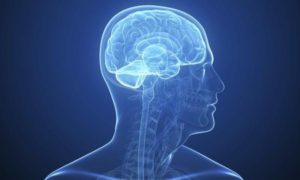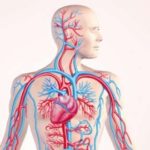Interesting facts about the nervous system
 The unimaginable complex human nervous system is one of the most important components of the body. It is through nerve impulses that we can feel, see, hear, and therefore receive information about the outside world, interacting with it. She has already been studied quite well, but it is possible that we still simply do not know some facts about her. However, medicine does not stand still, which can not but rejoice.
The unimaginable complex human nervous system is one of the most important components of the body. It is through nerve impulses that we can feel, see, hear, and therefore receive information about the outside world, interacting with it. She has already been studied quite well, but it is possible that we still simply do not know some facts about her. However, medicine does not stand still, which can not but rejoice.
The brain and spinal cord form the basis of the human central nervous system. In our country, the brain is more developed, and in some extinct dinosaurs the main functions were performed by the spinal cord.
These or other problems with the nervous system occur on average every fifth inhabitant of the Earth.
The speed of movement of the nerve impulse in the body of a person exceeds 300 km / h.
The total length of the nerve fibers in the body of an adult is approximately 75 kilometers.
There are about 100 billion neurons in the human brain. If you put them in a row, you get a line that is about a thousand kilometers long.
The nervous system is also interesting in that its cells are larger than any others in our body.
Despite the fact that the brain is the main one in the human body, the spinal cord also sometimes makes decisions itself. This is called reflexes.
Lag in mental development is often caused precisely by problems with the nervous system. If the brain is not sufficiently supplied with oxygen, the thought processes will be slow.
Contrary to the common myth, not all diseases can occur due to nervous tension.
Another interesting myth is that the human brain is used by only 5-10%. This is not so, on average, we use the resources of our brain a little less than half, and with intense mental work the load increases rapidly.
The main difference between the human nervous system and the computer is that the neurons of the brain perform all actions simultaneously, and the computer sequentially.
The total amount of memory that the human brain can accommodate is approximately 1000 terabytes.
All five basic human senses – smell, touch, hearing, sight, taste – are directly connected with the nervous system.
In the human body, the nerve cells are much larger than the people on Earth.
All the nerves in the human body are connected in 43 pairs.
Lack of water in the body leads to a decrease in the pace of the brain and the overall slowdown of the nervous system.
All signals between nerve nodes are transmitted by electricity. At the same time, the work of all neurons in the human nervous system requires less energy than would be required to turn on a low-power light bulb.



























